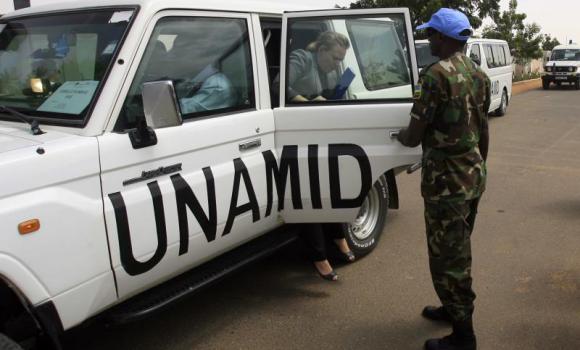Three weeks from now, the fifth anniversary of the January revolution will be upon us. Once again, we will sit down and reflect upon an experience that was painful as well as glorious, bitter yet formative and enriching though commonly misunderstood and wrongfully accused.
Five years ago, when we were caught up between revolutionary enthusiasm and Tahrir Square’s collective morality, few of us envisioned the unfortunate trajectory Egypt was taken on, on the heels of the revolution. The joy of ousting Hosni Mubarak, the sense of achievement in the ability to act as one cohesive block, the resurrection of our right to use public space and the definite proof that Egypt is not politically and intellectually barren were all overwhelming.
Trapped between a high ceiling of expectations and an influx of wishful thinking, we somehow chose to turn a blind eye to structural facts about the Egyptian state and inherent defects within Egypt’s political landscape.
Perhaps the most appropriate approach to analysing the path taken by the January revolution over the course of the past five years is to actually examine what happened to the political actors who were in the centre of the scene back then.
Among the most important political actors, not only after January 2011 but also during the last decade of Mubarak’s rule, were social movements. Some choose to call them protest movements, youth movements, revolutionary movements or even non-institutional political entities. Regardless of the terminology – that could be situated according to the context of discussion – the core characteristics remain one and the same. We are addressing social and political entities that worked outside of the state’s institutional framework, whether before 2011 or afterwards.
The majority of those movements’ members belonged to an age group below 35 years of age. Although some were ideological, the majority was cross-ideological, mobilising on a platform of cause rather than creed. Examples of such movements include 6 April, the Revolutionary Socialists, Youth for Change, We are all Khalid Said and the National Campaign for Supporting Al-Baradei. The setback in the influence of those movements after June 2013 poses various questions about what happened to them.
Several answers to that question revolve around the idea that social activity, and collective action in general, was forced out of the scene due to the introduction of the Protest Law and the state’s repressive measures towards political activism. While this explanation is indeed true, it is very much incomplete.
The political environment in which social movements act is definitely influential, and that environment has changed a lot since 30 June. The Protest Law was not the only legislation that curbed collective action; other laws, like the NGO law, the universities law and the terrorist entities law, did the same.
In addition to those legislations, a number of court rulings outlawed the activities of some social movements, such as 6 April and the Ultras. Moreover, the propaganda in the media and the different elite alliances against those movements were indeed an important factor the negatively affected non-institutional collective action in general.
Finally, the aggressive return of the state’s repressive apparatus represented in illegal detentions, political trials, torture, disappearances, defamations, and, recently, assassination attempts. Faced with a closed and repressive political environment like the one Egypt lives under since July 2013, it is only logical for social movements to merely reconsider their tactics and the strategies of their presence.
However, the repressive political environment and the closure of political opportunity after July 2013 are not the only challenges social movements are facing. Since January 2011, social movements faced a number of diverse internal challenges. Some movements, like 6 April for example, went through serious controversy over movement leadership. Other movements had major contentions over political orientations and ideological positions.
Similarly, interactions with other political forces and the idea of engaging in political alliances were also sources of internal disputes. At the same time, some movements had a problem in drawing the line between political action in an individual capacity and political action in a collective sense, in the movement’s capacity as a cohesive entity. Finally, almost all social movements faced difficulties in accommodating the expansion in membership after the changes in the political environment in 2011 and the resulting popularity and media exposure.
Neither the venue nor the space will allow for a detailed examination of the impact of the past five years on social movements in Egypt. However, a momentary setback does not mean the disappearance of the entities or the death of the ideas they stood for.
A number of social movements set out to change the political reality and conditions in Egypt more than a decade ago. The January revolution was proof that their attempts were successful, perhaps not to the extent that they had hoped for, but the political environment was changed nonetheless.
These political changes however created a new set of opportunities and challenges that require social movements to reconfigure their tactics and their strategies in order to respond to political transformations. In a simpler manner, social movements are not dead; they are just re-formulating their strategies to respond to a different set of challenges.
Taking to the streets on 25 January is not the ultimate goal of social movements. The true goal is the ongoing pursuit of democracy and change. The “when” and the “how” of that pursuit are not dictated by a specific occasion, they are dependent on various factors that need to be equally considered. Egyptian social movements may have suffered a setback since July 2013, but all the facts on the ground affirm that the struggle for democracy is nowhere near over.
Ziad A. Akl is a political analyst and sociologist. He is a senior researcher at the Egyptian Studies Unit in Al-Ahram Center for Political and Strategic Studies.



